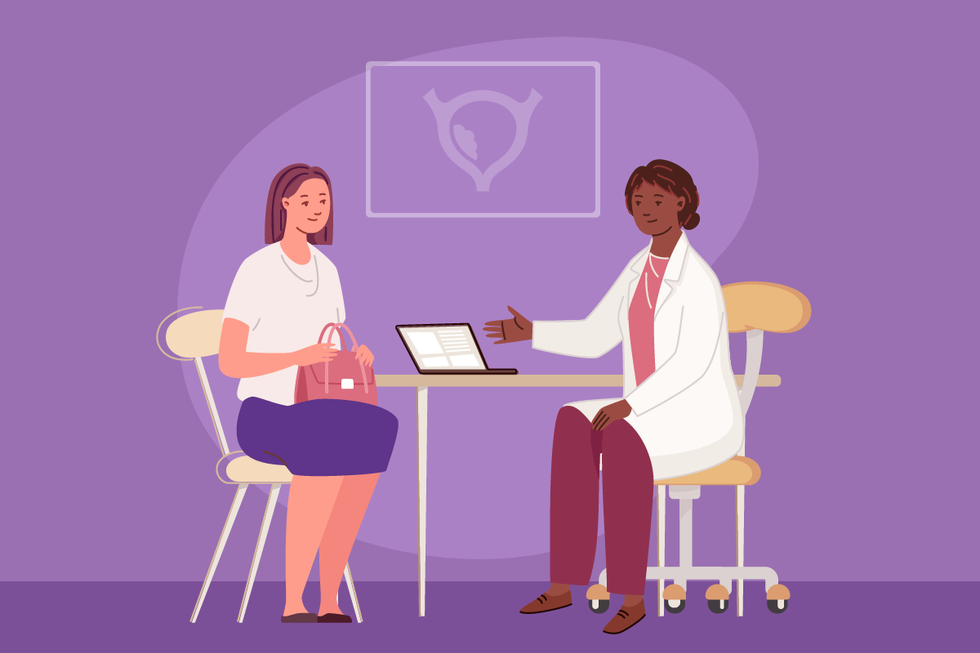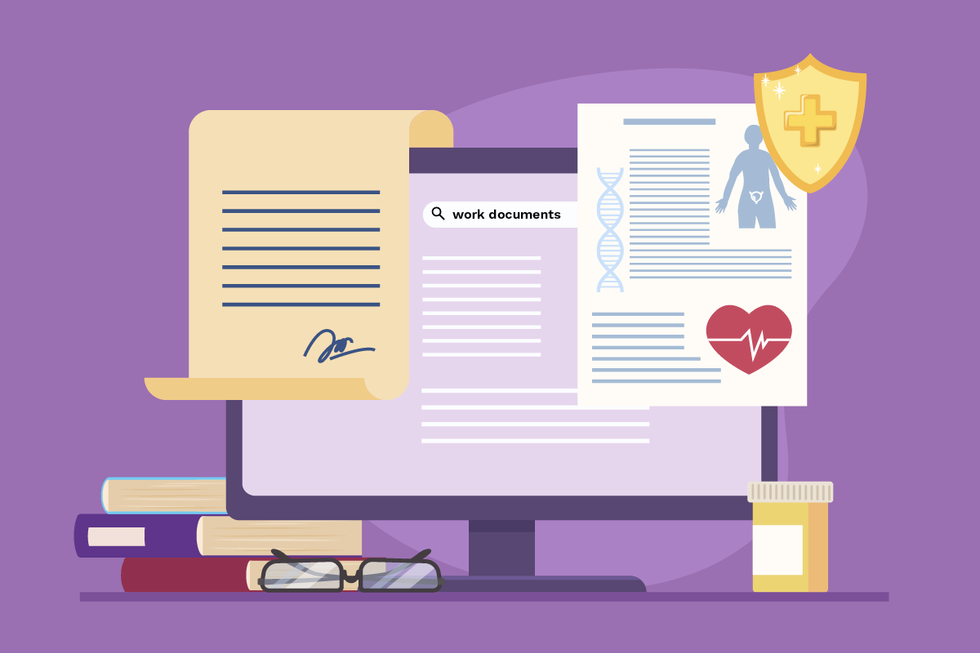“You’ve bladder most cancers.”
Whereas it could actually really feel just like the world stops the second you hear these phrases, life does go on — and generally which means going again to work. Whether or not you’re interested by persevering with to do your job by therapy or going again afterward, there are issues you are able to do to make it simpler.
Speak to your healthcare supplier

If you already know returning to work throughout or after bladder most cancers therapy can be a precedence for you, it’s price letting your most cancers care crew know. Whereas most of your therapy plan will rely upon how invasive or aggressive your bladder most cancers is, healthcare suppliers (HCPs) may also take your want to work into consideration, mentioned Eila Skinner, M.D., a urologic oncologist and professor of urology at Stanford Well being Care in Stanford, California.
“Nearly all of folks with bladder most cancers even have outpatient surgical procedure and/or therapies put into the bladder,” Skinner mentioned. “So sufferers want day off work for every therapy, however they do not essentially have an enormous impact on their skill to work.”
She added that extra sophisticated therapies reminiscent of bladder elimination, radiation or chemotherapy might make working tougher, however that HCPs can nonetheless assist navigate work points. “We’ll provide help to along with your employer to determine how one can get these days off and no matter documentation you want,” Skinner mentioned.
Many sufferers even have the choice of speaking with a social employee on the therapy heart about making a back-to-work plan. These social employees may also level sufferers towards supportive providers.
Know your authorized rights

If it’s essential to take day off for therapy or different causes associated to your bladder most cancers, chances are you’ll be eligible for unpaid go away underneath the federal Household and Medical Depart Act (FMLA). In response to FMLA, folks with most cancers can take as much as 12 weeks of unpaid, protected go away per 12 months if you happen to:
- Labored in your employer for at the very least 12 months
- Labored at the very least 1,250 hours (about 25 hours per week) over the previous 12 months
- Work at a location with 50 or extra workers inside 75 miles of your private home
FMLA go away may be taken abruptly or in shorter chunks. You can even scale back your each day hours or work half time for some time.
Individuals with most cancers (or a historical past of most cancers) might also qualify for authorized safety underneath the Individuals with Disabilities Act (ADA), a federal regulation that forestalls discrimination in opposition to folks with disabilities. It is because the ADA considers “disabilities” to incorporate any impairment that considerably limits a serious life exercise or a historical past of this kind of impairment.
In response to the ADA, employers ought to consider workers with most cancers primarily based on their abilities, information and expertise, in addition to how the illness impacts them. They need to not make choices about workers with most cancers due to concern or stereotypes about most cancers.
For instance, an employer can’t demote an individual going by therapy for bladder most cancers as a result of they’re apprehensive that job stress will make the most cancers worse.
The ADA additionally requires employers to supply office changes (referred to as cheap lodging) to folks with most cancers in order that they’re capable of proceed doing their jobs.
Along with these federal protections, your human sources division can reply questions on employer-specific insurance policies associated to:
- Brief- and long-term incapacity
- Insurance coverage
- Sick and flex time
Ask about lodging

When you’ve let your employer learn about your bladder most cancers, you may ask for lodging that may make it simpler so that you can work throughout and after therapy. Some ADA-covered lodging embrace:
- Further/prolonged breaks
- A personal space to relaxation and take remedy
- Working from residence
- Sharing work with a co-worker
Different examples of changes which may make working extra doable for you’re:
- Rearranging your workspace (or transferring to a brand new one)
- Altering your schedule and/or working exterior regular enterprise hours
- Briefly switching to a special job inside the firm
- Avoiding bodily labor
- Ensuring you might have entry to seating when wanted
- Taking day off for appointments
Step one towards getting lodging is discovering out what, if something, it’s essential to present to your employer. Firms might ask for documentation, reminiscent of medical approval or a observe out of your HCP.
On the brink of return

When you’ve arrange lodging, it’s time to get your remaining geese in a row. Take into consideration what you need to share along with your co-workers about your bladder most cancers. Scope out the lavatory scenario and entry to any non-public loos, the place you may handle self-catheterization or different wants.
It’s additionally a good suggestion to place collectively an emergency package in your desk or automobile in case you’re unexpectedly caught at work (or in site visitors). This package ought to comprise issues like medicines, ostomy provides and the rest you may want.
In response to Skinner, the very best factor to do is take issues day-to-day.
“I normally inform sufferers to strive to not assume too many steps forward as a result of it is simply not predictable,” she mentioned. “I’m an optimist, so I inform them to be optimistic till given a cause to not be.”
This instructional useful resource was created with help from Astellas, Merck and Pfizer.
From Your Website Articles
Associated Articles Across the Internet

